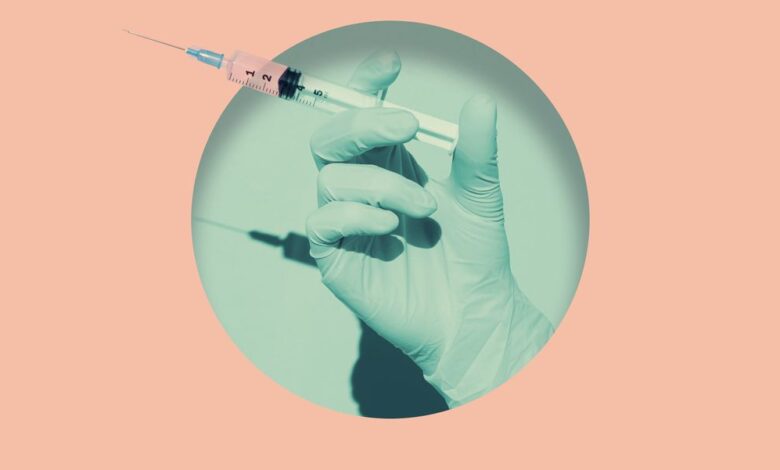What Immunocompromised Means for Third COVID-19 Vaccine

[ad_1]
- Food and Drug Administration officials have authorized additional booster vaccine doses for those with pre-existing medical conditions that impact their immune systems.
- The definition of “immunocompromised” is broad for medical providers, and ultimately may be interpreted differently across state lines.
- Future rollout of a third booster vaccine for other Americans won’t occur yet, but is expected to follow soon after these kinds of immunocompromised individuals receive a vaccine.
After weeks of meetings between officials and pharmaceutical representatives on potential third boosters — and some pushback from federal health officials — the Food and Drug Administration (FDA) has approved additional booster vaccines on Thursday. The updated emergency use authorization approval is limited to immunocompromised individuals who have already elected to receive vaccination and may have a less potent amount of antibodies to keep safe from COVID-19 spread among the country.
Federal health officials have had access to mounting evidence (including forthcoming studies like this one) that suggests those with pre-existing conditions and weakened immune systems may enjoy less earned vaccine immunity than others. Given that the current uptick in new COVID-19 cases is driven by the highly contagious Delta variant, the FDA’s decision to allow individuals to officially seek out another shot could help stave off serious infections.
But many Americans may be wondering if their existing condition qualifies them for an additional booster vaccine, which CNBC reports could be available as soon as this week, largely via care providers, pharmacies and clinics with stock. Officers at the Centers for Disease Control and Prevention (CDC) may further refine how these third booster doses are rolled out in the coming weeks, and who will be able to get them first.
For now, state health officials and medical providers may be operating on what the FDA has laid out in initial approvals for a third booster shot made in part by pharmaceutical teams at Pfizer and Moderna. One thing is clear: U.S. health officials have yet to give the OK for third booster shots for everyone. Previously, it’s been reported that as many as one million people have received a previously unauthorized vaccine from their care providers — most likely high-risk individuals with weakened immune systems, according to ABC News.
It is likely, however, that all vaccinated individuals will need them at some point; CNBC reports that Anthony Fauci, M.D., chief White House medical advisor throughout the pandemic, has previously told the public that booster doses will be necessary as SARS-CoV-2 (the virus behind a COVID-19 diagnosis) continues to mutate throughout the winter. Officials are prioritizing boosting immunity against the virus for those who need it most, Dr. Fauci has stressed, and official recommendations are likely to change in the coming months.
What does immunocompromised mean, exactly?
You may be wondering what kinds of health conditions or chronic illnesses affect immune systems effectively that you’re officially considered ‘immunocompromised’ by medical experts. Approximately 3% of all adults in the U.S. are considered textbook immunocompromised by CDC officials, and the key distinction here for these 7 million individuals are chronic conditions or prescribed drugs that continually impact immune systems.
This content is imported from Twitter. You may be able to find the same content in another format, or you may be able to find more information, at their web site.
Currently, FDA officials have indicated just a few subsets of the kinds of conditions that would qualify someone for a third booster shot — namely, organ transplant recipients and cancer patients, per the Associated Press. But the language in the updated EUA release from FDA officials indicates that those aren’t the only conditions that medical care providers would be able to consider.
According to the National Institute of Allergy and Infectious Diseases, there are upwards of 200 specific immune deficiency diseases that indicate someone is immunocompromised. Combined with CDC definitions, these are some of the conditions that are likely able to receive an additional booster shot at this time:
- Organ transplant recipients on certain medications
- Cancer patients undergoing treatment
- Blood disorders, including leukemia and lymphoma
- HIV/AIDS
- Lupus
- Rheumatoid arthritis
- Multiple sclerosis
- Inflammatory bowel disease, including Crohn’s disease and ulcerative colitis
- Type 1 diabetes
If anything is clear, it’s that FDA and CDC officials may leave final determination over eligibility for a third booster shot with primary care providers. Doctors may consider all of these conditions and those taking immunity-weakening medications as qualified for another vaccine, especially based on someone’s personal medical history.
When will I be able to receive a third booster shot?
The FDA has made it clear that additional booster shots will not be administered to other vaccinated Americans just yet. CDC officials will determine how immunocompromised individuals will receive additional shots in the coming days, as it’s currently unclear if these additional boosters will be available at public clinics or pharmacies.
It seems more likely that primary care providers will either administer the extra dose directly to affected patients. Or, they’ll provide these individuals with documentation to be able to receive a shot elsewhere. Third booster shots could be available as soon as this week, per reports, depending on how CDC officials on the agency’s Vaccine Advisory Committee decide to proceed with its rollout.
If you’re able to receive a booster vaccine due to a preexisting condition, you’ll likely get an additional dose of the same brand of mRNA vaccine you received earlier this year — or a particular option as directed by your care provider if you opted for the one-dose Johnson & Johnson vaccine. On a recent appearance, Dr. Fauci indicated that it would be “preferable that you go with the same brand” when it comes to receiving a third dose, but added, “there will be guidance when that time occurs.”
Current data suggests that both Pfizer and Moderna vaccines currently authorized in the U.S. remain most effective for up to six months; Moderna’s models put it at 94% effective in preventing COVID-19 spread, and Pfizer’s data indicated it was 95% effective based on clinical trials. Boosters are likely to follow for all vaccinated individuals over the next few months as many Americans surpass that six-month immunity threshold.
Should you get a COVID-19 vaccine if you have an autoimmune disease?
Currently, CDC guidance indicates that the COVID-19 vaccines authorized for use can be “safely administered to immunocompromised people, including people with HIV infection or other immunocompromising conditions or people who take immunosuppressive medications or therapies.”
If you’ve already been vaccinated, you’ve likely received special instructions or care notes from your primary care provider; whether it’s been dealing with potential side effects during your first round of shots or any medication side effects thereinafter. You’ll need to consult them again about any additional booster shots since it’s likely that additional side effects or symptoms may present at the time of vaccination.
Third booster vaccines will only be available to those who have been previously fully vaccinated. While earning a similar immune response to vaccination compared to those with no preexisting conditions is not guaranteed, per the CDC, officials remain certain that “the potential benefit of COVID-19 vaccination outweighs the uncertainties.”
Immunocompromised individuals will have to stay vigilant about best practices to reduce the spread of COVID-19, beyond getting vaccinated, CDC officials stress. “People who are immunocompromised should… continue to follow current prevention measures (including wearing a mask, staying six feet apart from others they don’t live with, and avoiding crowds and poorly ventilated indoor spaces) to protect themselves against COVID-19 until advised otherwise by their healthcare provider.”
As more information about the coronavirus pandemic develops, some of the information in this story may have changed since it was last updated. For the most up-to-date information on COVID-19, please visit online resources provided by the CDC, WHO, and your local public health department.
This content is created and maintained by a third party, and imported onto this page to help users provide their email addresses. You may be able to find more information about this and similar content at piano.io
[ad_2]
Source link





